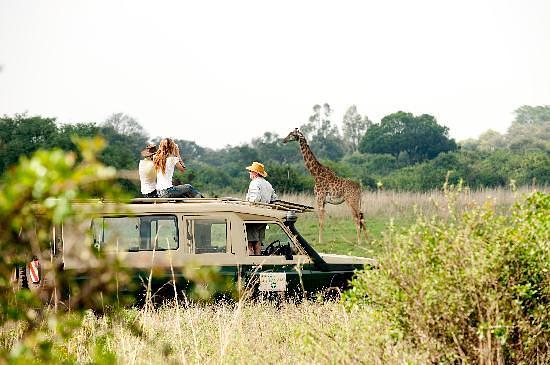
Planning a family safari in Africa is an exciting yet intricate process that requires careful consideration of various factors. A safari offers a unique blend of adventure, education, and relaxation, making it an ideal vacation for families. From choosing the right destination to ensuring safety and comfort, every aspect needs to be planned meticulously to create a memorable experience for all family members.
Choosing the Right Destination
Africa is vast, with numerous safari destinations offering diverse experiences. Countries like Kenya, Tanzania, South Africa, Botswana, and Namibia are among the top choices. Kenya and Tanzania are famous for their abundant wildlife and the Great Migration, making them perfect for families eager to witness nature at its best. South Africa, with its malaria-free reserves and excellent infrastructure, is ideal for those traveling with young children. Botswana provides a more exclusive and luxurious safari experience, while Namibia offers stunning landscapes and unique desert wildlife encounters.
Best Time to Go
Timing is crucial when planning a family safari. The dry season, which typically falls between June and October, is the best time for wildlife viewing. During this period, animals gather around water sources, making sightings easier. However, the wet season, from November to May, offers lush landscapes, fewer tourists, and lower prices. Families traveling with young children may prefer the dry season for its more predictable weather and better road conditions.
Selecting Family-Friendly Accommodations
Accommodation plays a significant role in the overall safari experience. Many lodges and camps cater specifically to families, offering interconnecting rooms, child-friendly activities, and babysitting services. Some lodges even have dedicated guides for children, providing educational experiences tailored to younger guests. Opting for private game reserves or lodges with exclusive-use vehicles can enhance the experience by allowing for a flexible schedule that suits the family’s needs.
Health and Safety Considerations
Ensuring the safety and well-being of all family members is a top priority. It is essential to check the health requirements of the chosen destination, such as vaccinations and malaria prevention. Packing a well-stocked first aid kit with essential medications, insect repellent, and sunscreen is recommended. Families should also choose destinations with malaria-free zones if traveling with young children. Additionally, educating children about wildlife safety, such as staying inside the vehicle during game drives, helps prevent any unnecessary risks.
Packing Essentials for a Family Safari
Packing for a safari requires careful selection of clothing and gear. Lightweight, neutral-colored clothing helps blend into the environment and keeps travelers comfortable in varying temperatures. Sturdy walking shoes, hats, sunglasses, and a good-quality camera are essential. Binoculars for each family member enhance the wildlife viewing experience. Other essentials include refillable water bottles, snacks, and entertainment for children during long drives between safari locations. Knowing how to plan a family safari in Africa ensures that travelers bring the right items for a smooth experience.
Activities Beyond Game Drives
While game drives are the highlight of any safari, engaging in other activities can make the experience even more enriching. Many lodges offer guided bush walks, allowing children to learn about tracking animals and identifying different plant species. Cultural visits to local villages provide insight into African traditions and customs. Some destinations also offer boat safaris, horseback riding, and hot air balloon rides, adding variety to the adventure. Families should consider how to plan a family safari in Africa to include a mix of activities suitable for all ages.
Budgeting for a Family Safari
A safari can be a significant investment, so setting a realistic budget is essential. Costs vary depending on the destination, accommodation type, and level of exclusivity. Booking during the off-season can lead to substantial savings. Some lodges offer discounts for children or family packages that include meals, activities, and guided tours. Working with a reputable safari operator helps in finding the best deals without compromising on quality and safety. Understanding how to plan a family safari in Africa helps families allocate their budget wisely to maximize their experience.
Ensuring a Child-Friendly Experience
Keeping children engaged and entertained throughout the safari is crucial. Choosing lodges with kid-friendly programs and involving them in planning can make the trip more enjoyable. Bringing along field guides, journals, and sketchbooks encourages children to document their experiences. Keeping game drives shorter and planning regular breaks helps maintain their enthusiasm. Additionally, ensuring meals cater to children’s preferences and dietary needs is essential.
Creating Lasting Memories
A family safari in Africa is not just about spotting the Big Five but also about creating cherished memories together. Encouraging children to take photographs and share their observations fosters a deeper connection with nature. Spending evenings around a campfire, listening to stories from local guides, and stargazing in the African wilderness add to the magical experience. The combination of adventure, education, and bonding makes a family safari a truly unforgettable journey.
Planning how to plan a family safari in Africa involves thoughtful preparation and choosing the right elements to match the family’s needs. From selecting the best destination and accommodations to ensuring safety and engagement, each step contributes to a successful trip. With careful planning, a family safari can be a once-in-a-lifetime experience that leaves everyone with incredible memories to treasure for years to come.













